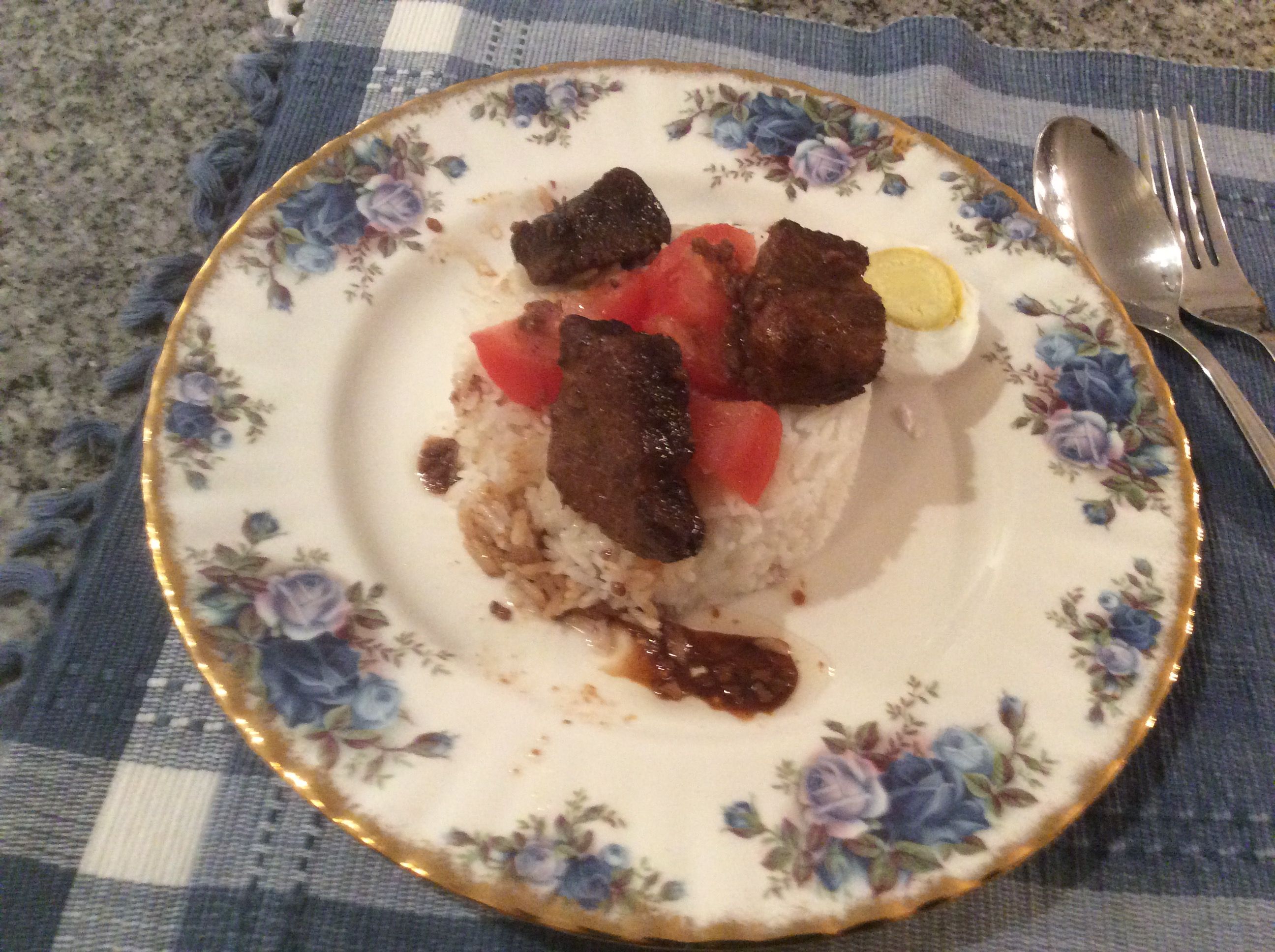ADOBO, National Dish of the Philippines or...?

Adobo is one of the most popular dishes in the Philippines. It’s one of my favourite dishes. Like many of the recipes my mom taught me, I have never really written it down. I am now starting to develop my favourite recipes and once and for all going to write them down for passing down to my 3 daughters and their future families.
However, as I have found out, adobo is not a “recipe” it’s a way of cooking. Having been away from my homeland for over 40 years, I wanted to find out what the history of adobo is.
At its most basic form adobo is a meat in a vinegar and soy sauce marinade. It’s interesting that such a Spanish sounding dish has soy sauce in it, but here is why. Long before the Spaniards came to rule in the Philippines, vinegar and salt were being used as preservatives in absence of refrigeration. When the Chinese traders arrived, soy sauce and “Pancit” noodles were introduced. “Adobar” is the Spanish word for marinate, so that’s where the name came from.
There are so many interpretations on how to make “the best” adobo. Usually Nanay (mom) knows best. Nowadays, it’s becoming mainstream and many variations have emerged. It’s been featured in restaurants in North America and shows like Top Chef. Some people like it dry and crispy, some like it saucy. But the tricky thing is to find the balance between the two and also to find the ratio of vinegar to soy sauce that is most pleasing to the eater. The only ingredient that does not cause any disagreements is the garlic and lots of it! Also, the method of cooking makes a difference to its appearance. It can also be made into a pulled pork version.
Tonight, I decided to cook it in the oven to try and keep the shape of the pork. The usual way is to sauté in a sauce pan and simmer until tender.
1 Pork Shoulder Butt Steak, 3 inch pieces
5 Tbsp Soy Sauce
2 Tbsp Garlic, minced
Pinch of Kosher Salt
Ground pepper, to taste
Garlic powder, to taste
MSG (optional)
5 Tbsp White Vinegar
Cooking oil
I marinated the pork (pork shoulder butt steak) in 2 Tbsp garlic, 5 Tbsp Soy Sauce, pinch of kosher salt, ground pepper, to taste, garlic powder to taste and msg (optional). Then, I cooked it in a baking dish lined with cooking oil. After 15 minutes, I turned the meat over, and continued cooking. I added the rest of the marinade and 5tbsp of vinegar and 1/2cup of water to make sure I have sauce at the end. If you like it dry, you can omit the water, but just watch that it does not burn on you.
No matter what version you experience first or what your preferences is, it’s ALL good! Now, is it the Philippine National Dish or is it Sinigang?!?! That’s a topic for another post!
Till next time! Cheers! Health and Happiness,
Christine